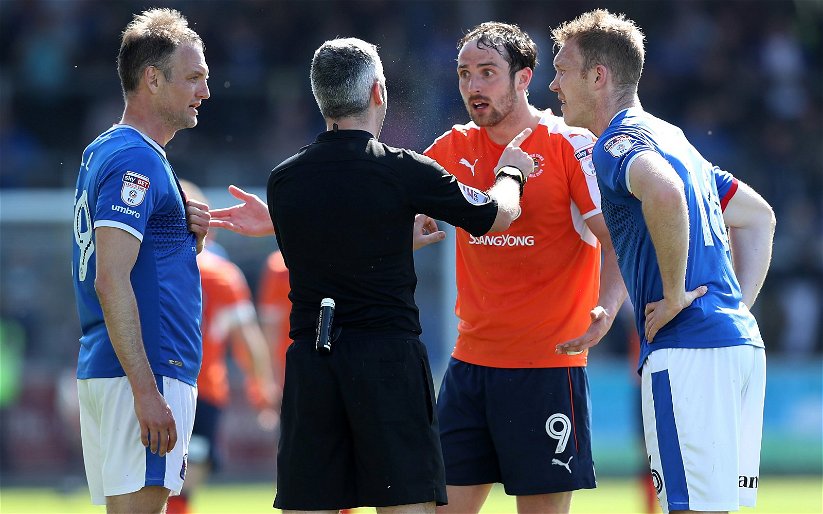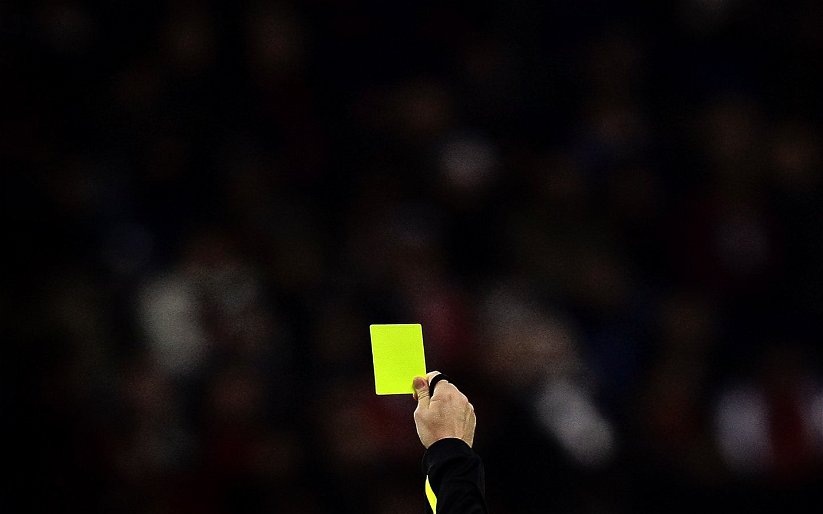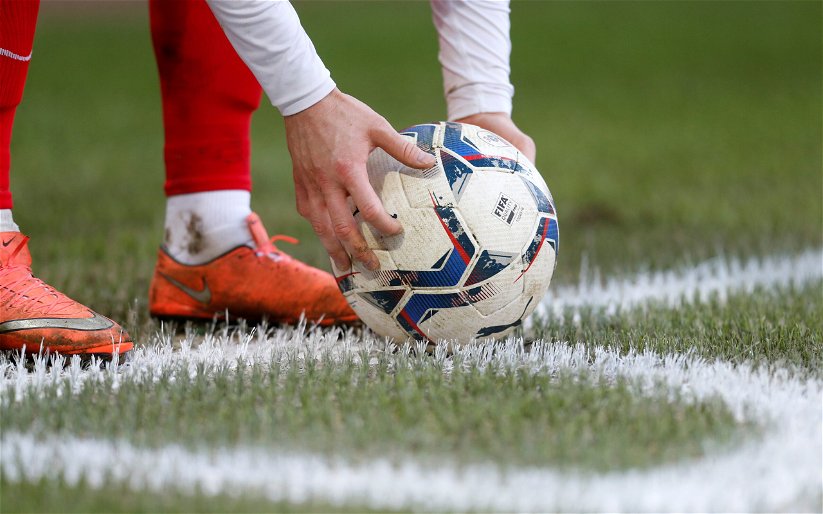Three weeks ago, and entirely against my better judgement, I found myself watching a live football match on Sky. In my defence, I was suffering from a cold and a cracked rib, and could not face the considerable pain of picking up the remote to change channel. I knew it would not be an enjoyable viewing experience in any way, and I was correct in that. I bet you know already what is coming next, but fasten your seatbelts and grab your sick bags anyway.
As far as I could tell, the game consisted of twenty-two people trying very hard to fall over as often as possible. They would then writhe in agony as if fatally wounded, but for no more than seven seconds. Having miraculously recovered, they would squabble like primary school children and wave imaginary yellow cards at the referee before a football match broke out again. Handbags-at-dawn confrontations were nauseatingly frequent, as were running arguments with the referee. The poor sod in black never knew whether to stick or twist, resulting in a series of decisions that were essentially guesswork. He had as much chance of getting a decision right as FIFA has of saying or doing anything intelligent.
The penalty areas at set-pieces resembled wrestling rings more than penalty areas: Kendo Nagasaki would have had a great game. As the game wore on – and wore me down – I concluded that both sets of players were fundamentally unlikeable. As a consequence, I wanted as many of them as possible to get a kick in the knackers, to be sent off, or to be savaged by an escaped tiger. I had become increasingly antagonistic and desperately imaginative by that stage. Above all, I badly wanted both teams to lose.
At the same time, the imbecile commentator and his pet poodle pundit assured me that it was a great contest between two highly skilled and committed teams. That was decidedly at odds with my opinion of it, which was a load of unwatchable posturing between two teams of spoilt children. At the end of the game, some witless interviewer asked the two managers some banal questions before some more pundits told me how lucky I was to have witnessed such a fine spectacle.
Q: So, which Premier League game was it?
A: The Championship game between Leeds and Derby.
Personally, I find that deeply depressing. The irresistible conclusion is that all of those wonderful Premier League behaviours we know and love have seeped through the gaps in the floorboards and infected the brains of players and managers in the Championship below. Perhaps that was always inevitable: after all, they will be better prepared when they eventually reach the Promised Land if they already have their embarrassing histrionics down to a fine art. That may even be why all three teams promoted to the Premier League in 2017 (Newcastle, Brighton and Huddersfield) managed to stay there for a second season. That is a rare thing, remember.
To compound matters further, this was the game prior to which the Leeds manager Marcelo Bielsa admitted sending a spy to a Derby County training session. Less than a week later, he called an unscheduled press conference to admit he had actually sent a spy to watch every one of Leeds’ opponents train, and that he did not feel he had done anything wrong. This is not the World Cup we are talking about, or the Champions League; it is not the Europa League or even the Premier League; it is the Championship, in other words, the English Second Division. Considering his position at the head of a spy ring, perhaps we should simply refer to Marcelo as ‘M’ in future. But the fear is that Mr Bielsa’s conduct may be symptomatic of where the game has descended to, rather than the product of one man’s paranoia.
There is a large part of me that longs to see Lincoln City restored to the place it last graced in 1961 – the second tier of English football. That was four years before I was born, and I class myself as one of the older supporters nowadays. During City’s golden age of the early Eighties, it was hoped that Colin Murphy was about to lead City back to the Second Division after a twenty-year absence. Incredibly, that gap is now almost sixty years: time flies when you are having fun, and obviously when you are not. Sixty years is a long time.
But there is one nagging doubt. There is nothing about the Premier League that I admire. Nothing. I have no desire to see my team become a part of it, because I have serious problems reconciling the form of the game played there with the game I watched as a boy. Before you start playing the Hovis theme in your head and sourcing a place in a retirement home for me, I do accept that everything evolves over time. However, I do not accept that evolution is necessarily improvement, and to my mind football is a poorer game than it used to be.
There is a scene in Life On Mars where ordinary fans are seen walking together to the Manchester derby; it is 1973, it looks wonderfully nostalgic and I often wish we could go back there. Football was far from perfect in those days but it was fundamentally honest. The players took pride in being tough, they got stuck in and gave as good as they got. It was entertaining in a way today’s games are not. Even the top players drove home in beaten-up cars and drank too much on Saturday evenings. But despite all the money sloshing around now, and despite all the immensely talented footballers we have brought to these shores in recent times, the uncomfortable truth is that something essential has been lost. So much so, that I no longer have any desire to watch it.
But what about the Championship? I still call it the Second Division, which last included Lincoln City in its fixture list nearly a lifetime ago. We have speculated and even fantasised many times that Danny Cowley may be the man to take us back to where many older fans believe we belong. I have spent my entire time supporting Lincoln City, which now runs to forty-eight seasons, hoping for exactly that. It should be immensely exciting.
However.
It is inescapable that the Championship today bears little resemblance to the old Second Division frequented by Graver and Garvie. It is a very different place, with different dynamics, different financial demands, different everything. Lincoln would not be returning to a familiar place at all, but taking their place in an entirely new one. It would surely be the second tier, but that is where the similarity ends. There have always been big clubs in the second tier, relegated from the top flight and fighting to return. Those big clubs always had a financial advantage over the rest, but the big change now is the margin of disparity.
Firstly, the ludicrous solidarity and parachute payment system creates an inequality that exists nowhere else in football. The Premier League is the only league in the world to have such a system, and no other league rewards abject failure in quite as congratulatory a way. We all know that the bigger clubs receive vast amounts of solidarity money regardless of whether they ever win a game. Simply being in the Premier League guarantees that every club will be a bigger financial entity than Bayern Munich, with a share of 50% of the broadcasting money allocated without kicking a ball.
But it does not end there. The three relegated clubs last season received a massive £41.6 million each in parachute payments and will get a further £34 million next year if they are not promoted. If they were in the Premier League for more than one season, they will receive a further £15 million in the third year after relegation. That means a club can receive a handout of over £90 million essentially for being a very poor football team.
The sum of £41.6 million is almost impossible for the human mind to compute, so we can put it this way: £41.6 million equates to being given £1.32 every second of the year.
Now contrast that with the clubs they will be joining. An ordinary Championship club receives just over £3 million in solidarity payments (compared with £679,000 in League One and £454,000 in League Two). When that is compared with the £41.6 million the relegated Premier League clubs receive in year one alone, one has to wonder how any other club stands any chance of promotion whatsoever, and we will return to that quandary later. No fewer than eight Championship clubs received a parachute payment for this season, which represents exactly one-third of its total membership. That almost creates one league of eight clubs and another of sixteen.
Unsurprisingly, the case for having a parachute payment at all is a source of increasing criticism. Many people feel that if those relegated clubs have been imprudent enough to award ridiculously unsustainable contracts to mediocre players, then more the fool them: make them face the consequences of their own financial recklessness instead of condoning it through solidarity payments they should have no right to. Give the money to grassroots football instead.
Secondly, the number of big clubs in the second tier that we would consider to be traditional top-flight clubs has risen to unprecedented levels. The Championship is full of clubs with long First Division or Premier League histories: Leeds, Sheffield United, West Bromwich Albion, Derby, Nottingham Forest, Birmingham, Aston Villa, Middlesbrough, Stoke, Sheffield Wednesday, Bolton, Ipswich, Norwich…the list goes on. The vast majority of those clubs would have expected to have returned to their rightful place by now, which is a real curiosity considering the amount of money most of them received after relegation. But their presence also makes the challenge even more daunting for the likes of Lincoln City.
So how do smaller clubs compete with the parachute regiment? Why does every relegated club not bounce straight back up to the Premier League at the first attempt? The answer in part is that those clubs recruited poorly and wasted their solidarity and parachute money on expensive rubbish, but it is not as simple as that. Even relatively small clubs gamble recklessly on reaching the Premier League because of the outrageous rewards on offer. Brighton lost an astonishing £40 million in their promotion season of 2016-17, and they lost it deliberately. That equates to an eye-watering £769,000 per week. When you consider that Lincoln City almost went to the wall three years ago for the sake of £380,000, it is almost impossible to reconcile the demands of the second tier with what we have been used to. In short, Brighton were deliberately losing double the amount of Lincoln City’s almost fatal debt every week. That is not just a gap: it is a chasm of Grand Canyon proportions.
It gets worse still. City vice-chairman Roger Bates highlighted the burgeoning cost of ambition when he stated that a number of clubs in League One are willing to lose £20 million just to reach the Championship, never mind stay in it. He was probably referring to the likes of Sunderland and Portsmouth – two clubs with reprehensible financial histories – but it does illustrate how much money is required with every step up in level. Former chairman Bob Dorrian revealed last season that the club would have to find an extra million simply to be competitive in League One. City failed to make it of course, but the awkward reality is that the amount required is likely to rise, not fall. So the longer Lincoln take to get there, the larger the required investment will be. Time would appear to be of the essence.
So the financial payback for reaching the Premier League is stratospheric, almost on the edge of credibility. Consider this: just the one season in the top flight would enable Lincoln City to build that new stadium and put tens of millions in the bank to ensure a secure future for many years to come. Absurdly, they would not have to win a single game to earn it. That is immensely appealing, and in theory, it could become a reality as soon as May 2021 – a little over two years from now. The counterpoint to that ambition is that it will cost a vast amount of money in the interim, and the end result can never be much more than a dream. What might have happened to Brighton had they not been promoted does not bear thinking about.
But do we really want to be there?
We have said many times before that this is all about the journey, not wherever the ultimate destination may be. It is great fun to watch a winning team that is very much rising through the leagues, but the reality is that an exponential amount of money will be required to continue winning. Should City reach League One at the beginning of May, a lot more will be required to win the first game of next season, and so it goes. If an extra million is required simply to be competitive in League One, what price promotion? And what price the Championship with all those parachutists dropping from the sky?
It may all be pie in the sky, a pointless pipe dream. Placing the incredible financial rewards to one side for a moment, I have often thought that I would not want to see Lincoln in the Premier League because there are so many facets of it that I cannot abide. However, if the Leeds v Derby shenanigans are anything to go by, it would appear that the Championship has now absorbed the demands, behaviours and underhand skills of its big brother too. So if the Championship requires the same behaviours as the Premier League, and that is how our own club would have to behave to be there, perhaps you can keep that too.
Who did our members consider to be January’s star players?
Player of the Month is MICHAEL BOSTWICK who added to his reputation with a fine game and a goal at Everton. Bostwick topped the ratings in the first three games of the month, came second against Grimsby, and fourth against Yeovil and Bury. That is some month.
Second place goes to JASON SHACKELL despite his needless red card at Swindon. Stellar performances at Everton and Bury demonstrated that class is permanent. Perhaps the best piece of business City could do before the end of this month is to secure Shackell’s signature on an extended contract.
Third place goes to JOSH VICKERS despite another injury-interrupted month. How good would our one-legged goalkeeper be if he were fit?
The average team score of 7.05 is the highest of the season by far.
1. Michael Bostwick 7.90
2. Jason Shackell 7.80
3. Josh Vickers 7.79
—————————————————-
4. Danny Rowe 7.61
5. Scott Wharton 7.46
6. Harry Anderson 7.32
7. Michael O’Connor 7.19
8. John Akinde 7.18
9. Harry Toffolo 7.14
10. Neal Eardley 7.13
11. Cian Bolger 6.97
12. Matt Rhead 6.84
13. Shay McCartan 6.82
14. Tom Pett 6.68
15. Lee Frecklington 6.65
16. Grant Smith 6.42
17. Kellan Gordon 5.80
18. Bruno Andrade 5.30
19. Jordan Roberts 5.15
Individual ratings by match:
Port Vale: Michael Bostwick 7.40
Everton: Michael Bostwick 8.82
Swindon: Michael Bostwick 8.92
Grimsby: Harry Toffolo 7.71
Yeovil: Danny Rowe 8.41
Bury: Jason Shackell 8.60
So where does that leave us regarding the current Player of the Season standings?
1. Jason Shackell 7.11
2. Michael Bostwick 7.08
3. Tom Pett 6.90
Home Player of the Season
We have a new leader:
1. Jason Shackell 7.10
2. Tom Pett 7.07
3. Bruno Andrade 7.00
Away Player of the Season:
1. Michael Bostwick 7.20
2. Jason Shackell 7.12
3. Josh Vickers 7.04
Player of the Month:
August: Josh Vickers 7.33
September: Jason Shackell 7.47
October: Tom Pett 7.07
November: Michael Bostwick 7.42
December: Harry Anderson 7.37
January: Michael Bostwick 7.90
Writer: Scotimp
December Player Ratings: New Year Resolutions For Football Broadcasters:
December Player Ratings: New Year Resolutions For Football Broadcasters
You Can Keep Your Premier League…And Your Championship Too:https://t.co/WQJqup9ocZ#PremierLeague #SkyBetChampionship #EFL
— Vital Lincoln City (@VitalLincoln) February 8, 2019
https://www.facebook.com/VitalLincolnCity/posts/2050977481605153


